★★★½
“Four for the price of one?”
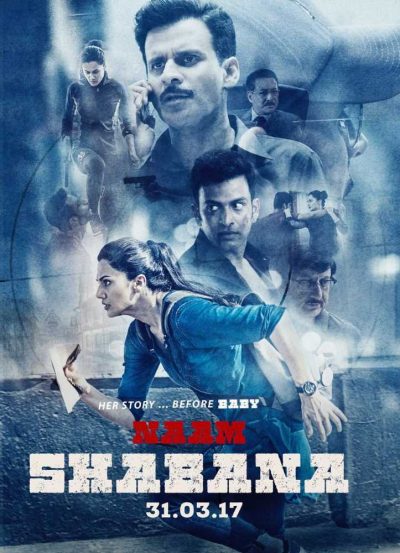 If you took four different films, by four different directors, and edited them together into a single entity, you might end up something similar to this. Oh, make no mistake: I still enjoyed most of this. It just doesn’t feel like a coherent whole, perhaps because it is a spin-off involving some of the same characters from an earlier film, Baby. For at least three-quarters of it, however, not having seen its predecessor shouldn’t be too much of a problem.
If you took four different films, by four different directors, and edited them together into a single entity, you might end up something similar to this. Oh, make no mistake: I still enjoyed most of this. It just doesn’t feel like a coherent whole, perhaps because it is a spin-off involving some of the same characters from an earlier film, Baby. For at least three-quarters of it, however, not having seen its predecessor shouldn’t be too much of a problem.
The first chunk is perhaps the weakest, introducing us to the heroine, Shabana Khan (Pannu), a college student and judo expert, with something of a quick temper. She has just started going out with a new boyfriend, when they get into an altercation with some cat-calling men, which ends with him dead in the street. It’s all rather unconvincing, not least the early incident which does a very poor attempt to establish Shabana’s zero tolerance for harassment.
Things do improve significantly thereafter, for it turns out she was under observation by a shadowy arm of the Indian government as a possible agent. She’s contacted by Ranvir Singh (Bajpayee), who offers to help her take revenge on her boyfriend’s killers, if she comes to work for him. With the authorities apparently uninterested in the case, Shabana accepts, and the next section covers her vengeance, and subsequent training under Singh. This is likely when the film is at its best, taking an interesting concept and executing it with some energy and flair.
Shabana then vanishes from her own movie in the third quarter, as we return to the topic of international arms dealer Mikhail (Sukumaran) he was briefly glimpsed at the beginning, making short work of two Indian agents in Vienna. Authorities have tracked down his ally, Tony, and apply pressure, hoping to discover Mikhail’s location. However, it turns out Mikhail has been using the services of a doctor to change his appearance, making the task of locating him that harder, and it becomes a race against time before he changes again, and the trail is lost.
Which brings us to another switch in direction for the final section, in which Shabana is sent into the hospital where Mikhail is about to get plastic surgery, in order to assassinate him. Here, she’s teamed up with Ajay Singh (Kumar), who was apparently the hero of Baby. There was a point where it looked like he was going to take over – not that we’d have minded too much, as we’ve always enjoyed seeing Kumar in action (despite his creepy mustache here), but this is supposed to be an action heroine film. Fortunately, that’s where it ends up.
Despite feeling a bit like Nikita, a bit like Peppermint, a bit like Alias and a bit like a Jason Bourne movie, there’s plenty going on, and the running time feels considerably shorter than its 147 minutes. It helps that its heroine is made to look relatively plain, rather than the typically stunning Bollywood actress.
Dir: Shivam Nair
Star: Taapsee Pannu, Akshay Kumar, Prithviraj Sukumaran, Manoj Bajpayee





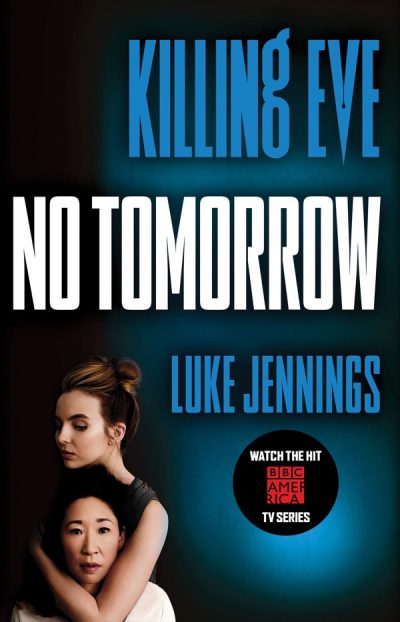 As we
As we 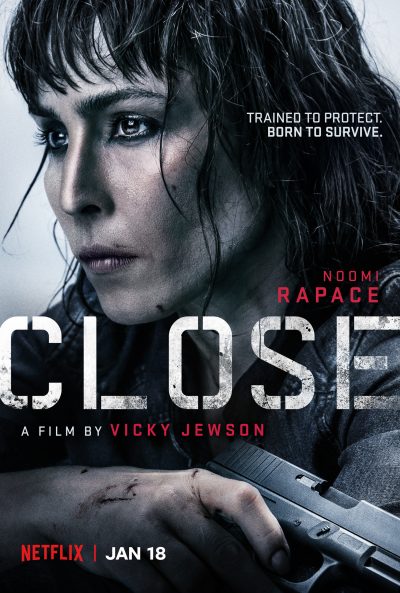 Rapace appears to be aiming for a niche in the straight-to-video (or, at least, straight to Netflix) action market, this coming on the heels of
Rapace appears to be aiming for a niche in the straight-to-video (or, at least, straight to Netflix) action market, this coming on the heels of 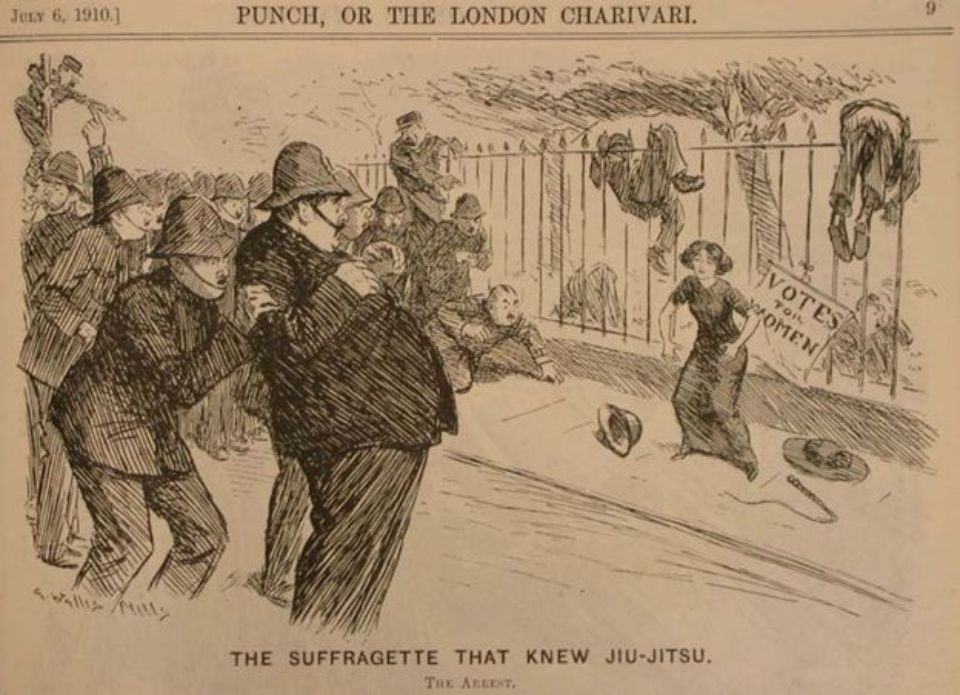
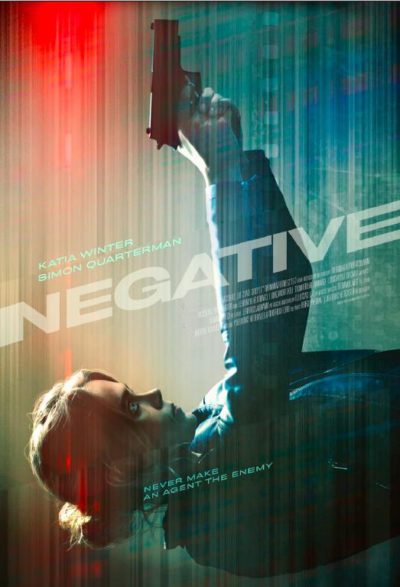 This is a very cunning title. For when you Google “Negative film review”, all you get are a lot of articles about Bright. Hohoho. [In five years time, people will probably have to Google “Bright” to understand this reference] Actually, it refers to a photographic negative, casually taken by Rodney (Roché) in the park. What he doesn’t realize at the time, is that he has accidentally captured the face of Natalie (Winter), a former MI-5 agent who is on the run. She turns up on his doorstep, demanding he turn over the photo to her, but before she can leave, the two Colombian assassins after her, also show up, and she has no choice but to take (the thoroughly confused and largely unwilling) Rodney with her. Together, they head for Phoenix and a safe house owned by Natalie’s former associate, Hollis (Quaterman), with the Colombians in pursuit.
This is a very cunning title. For when you Google “Negative film review”, all you get are a lot of articles about Bright. Hohoho. [In five years time, people will probably have to Google “Bright” to understand this reference] Actually, it refers to a photographic negative, casually taken by Rodney (Roché) in the park. What he doesn’t realize at the time, is that he has accidentally captured the face of Natalie (Winter), a former MI-5 agent who is on the run. She turns up on his doorstep, demanding he turn over the photo to her, but before she can leave, the two Colombian assassins after her, also show up, and she has no choice but to take (the thoroughly confused and largely unwilling) Rodney with her. Together, they head for Phoenix and a safe house owned by Natalie’s former associate, Hollis (Quaterman), with the Colombians in pursuit.
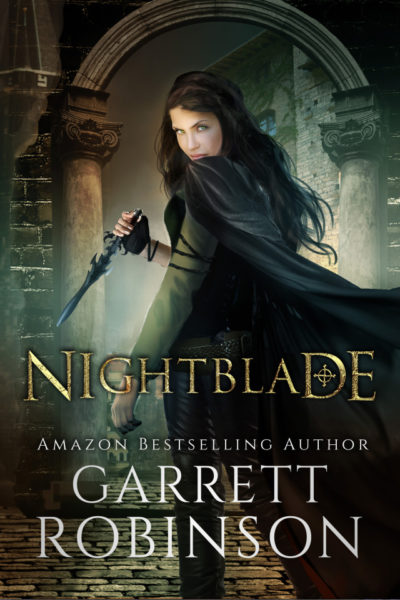 One of the common problems I’ve found with fantasy novels is establishing the universe. It’s clearly going to be very different from the reader’s, and the author needs to get them up to speed on how things work in the book’s setting. If this isn’t done quickly and effectively, the reader can be left floundering in a world they know nothing about. Robinson uses a neat trick to get around this. His heroine, Loren, basically knows nothing about it either, because she has been brought up in a remote rural area. Virtually all she knows about life outside the woods comes from tales told to her by an itinerant tinker, and her dreams of becoming a heroic thief seem no more than fantasies.
One of the common problems I’ve found with fantasy novels is establishing the universe. It’s clearly going to be very different from the reader’s, and the author needs to get them up to speed on how things work in the book’s setting. If this isn’t done quickly and effectively, the reader can be left floundering in a world they know nothing about. Robinson uses a neat trick to get around this. His heroine, Loren, basically knows nothing about it either, because she has been brought up in a remote rural area. Virtually all she knows about life outside the woods comes from tales told to her by an itinerant tinker, and her dreams of becoming a heroic thief seem no more than fantasies. In this late era Judy Lee film, she stars as the confusingly-named Brother Blind, a name which scores only 50% for accuracy. She is indeed, largely unable to see, the result of a confrontation with the motley group of bandits who killed her father (Sit). Though even here, there is some confusion as to whether there are 13 of them, as an alternate title suggest, or 14 as the English dub mentions on several occasions. They’re certainly a random bunch, some of who are missing limbs or fingers, as well as two “giants” who aren’t very tall, and a “poison dwarf” who wields a blow-gun, responsible for Brother Blind losing her sight.
In this late era Judy Lee film, she stars as the confusingly-named Brother Blind, a name which scores only 50% for accuracy. She is indeed, largely unable to see, the result of a confrontation with the motley group of bandits who killed her father (Sit). Though even here, there is some confusion as to whether there are 13 of them, as an alternate title suggest, or 14 as the English dub mentions on several occasions. They’re certainly a random bunch, some of who are missing limbs or fingers, as well as two “giants” who aren’t very tall, and a “poison dwarf” who wields a blow-gun, responsible for Brother Blind losing her sight.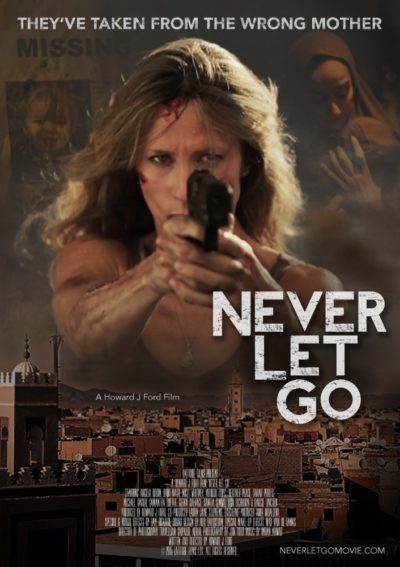 Based on the title and synopsis, I was expecting something like a Lifetime TV Movie. A mother frantically searching for her abducted child in a foreign location, before they can be sold off to some rich Arab, would seem right up their alley. [Though of course, this kind of thing has long been a popular subject for exploitation, to the point where the Hays Code of the thirties had explicitly to ban movies about “white slavery”] It’s a good deal grittier and harder hitting than that, though could have done with much better explanation of why this momma bear is so ferocious – among a number of other aspects.
Based on the title and synopsis, I was expecting something like a Lifetime TV Movie. A mother frantically searching for her abducted child in a foreign location, before they can be sold off to some rich Arab, would seem right up their alley. [Though of course, this kind of thing has long been a popular subject for exploitation, to the point where the Hays Code of the thirties had explicitly to ban movies about “white slavery”] It’s a good deal grittier and harder hitting than that, though could have done with much better explanation of why this momma bear is so ferocious – among a number of other aspects. Important to note the year here, because the original Night of the Living Dead, for all its massive influence (without it, there’d be no The Walking Dead or World War Z) was very, very far from an action heroine film. Though it started off focusing on its female lead, Barbara, after she reaches sanctuary in the farmhouse, she spends virtually the rest of the movie in a near-catatonic state, and the film switches focus to Ben, who becomes the film’s hero. The change for this remake is one of a number of alterations, which are likely both necessary and helpful: when you are redoing a film widely regarded as a classic, you’d better bring something new to the party. That’s something largely forgotten by many horror remakes.
Important to note the year here, because the original Night of the Living Dead, for all its massive influence (without it, there’d be no The Walking Dead or World War Z) was very, very far from an action heroine film. Though it started off focusing on its female lead, Barbara, after she reaches sanctuary in the farmhouse, she spends virtually the rest of the movie in a near-catatonic state, and the film switches focus to Ben, who becomes the film’s hero. The change for this remake is one of a number of alterations, which are likely both necessary and helpful: when you are redoing a film widely regarded as a classic, you’d better bring something new to the party. That’s something largely forgotten by many horror remakes.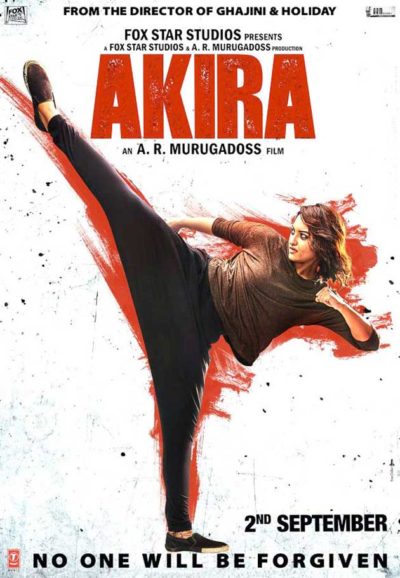 This is the first “true” modern Bollywood action heroine film I’ve seen, and has to be appreciated as such. While we’ve covered a couple of Indian films before, these have either been from outside the mainstream e.g. Bandit Queen, or have carefully corralled the action into socially-acceptable avenues, such as sport in Mary Kom. Neither is the case here, though the ending certainly has its share of hypocrisy, with the heroine being more or less sidelined, “for the greater good”.
This is the first “true” modern Bollywood action heroine film I’ve seen, and has to be appreciated as such. While we’ve covered a couple of Indian films before, these have either been from outside the mainstream e.g. Bandit Queen, or have carefully corralled the action into socially-acceptable avenues, such as sport in Mary Kom. Neither is the case here, though the ending certainly has its share of hypocrisy, with the heroine being more or less sidelined, “for the greater good”.